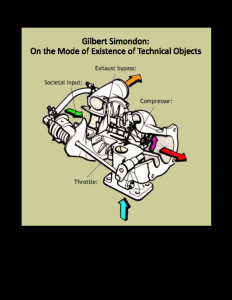A River With A City Problem – Margaret Cook (2019)
Termination Shock – Neal Stephenson (2021)
Last year I fled my house due to rising floodwaters, and soon after, my daughter’s cricket team finished up for the season. The water stopped short of our backyard, though not by much, and my daughter took some nice wickets with her loopy leg spin. It’s the second near miss we’ve had since buying the place nearly twenty years ago, but on the other hand, it’s two solid misses in two major Brisbane floods, which is a pretty good strike rate. Nevertheless, the whole street still exists on a rise at the edge of a wetland cleared a hundred and twenty years ago. Streets further south, the ones that had the creek running through them during the flood, would have been in the wetland itself, once. What does that make the odds of our house flooding? One in a hundred years? Maybe five hundred?
Fairly early in Neal Stephenson’s near future science fiction novel Termination Shock, a Texas oilman is flying over submerged Texas houses, many of which have been built thirty years earlier, and some of which have been expensively retrofitted by raising them on stumps. The oilman muses while watching a man standing on a porch with floodwaters near his feet. “He did not understand – none of these people did – that this is stochastic land on the edge of a stochastic reservoir. He didn’t understand because those are statistical concepts. People can’t think statistically.”
A lot of Brisbane is built on stochastic land. Yeronga. Rocklea. New Farm. Milton. Tucked into the sinuous curves of a tidal river, in the folds of crinkled hills and gullies that don’t seem vulnerable until your kitchen is full of muddy water.
It’s not hard to find evidence that people don’t understand statistical concepts. Casinos are full of bad gamblers. Kahneman and Tversky won a Nobel Prize for showing numerous ways that people don’t choose mathematically optimal strategies on various probability-based problems. Fine. On the other hand, statistical phenomena are pervasive. Will it rain today? Are the fish biting? Will the price of my house go up? The natural and artificial worlds are full of things that might happen, and that we can put some sort of partially informed odds on. If our bus to work is often delayed by traffic, we learn to leave more time, so even if the dice rolls badly, we won’t be late.
So perhaps we are bad at preparing for low probability catastrophes. Indeed, there is plenty of evidence for that as well, as flooded cities across Australia, melting cities in Europe, and accumulating disasters elsewhere attest. Yet long-established human societies learn rules for dealing with rare catastrophes as well. This is where Margaret Cook’s book, A River With A City Problem, starts. The Turrbal and Jagera peoples are fishing peoples, but when they camped on the banks of the Maiwar, the Brisbane River, they camped 14 metres above the waterline.
Cook has written a history of the Brisbane River, and in the period since colonial settlement, that makes it mostly a history of floods. There have been half a dozen major floods since the Brisbane penal colony was established in 1823, and a number of smaller ones in between. The pattern has been: new immigrants build unwisely on the floodplain; a flood comes a few years or decades later, with tragic loss of lives and livelihoods; reports are written and sometimes dams are built; rinse and repeat.
In a 1983 interview with James Peck, Noam Chomsky was asked why people aren’t informed about the complicated systems of world politics, intellectual history, and so on. Chomsky had an unusually modest response.
CHOMSKY: Well, let me give an example. When I’m driving, I sometimes turn on the radio and I find very often that what I’m listening to is a discussion of sports. These are telephone conversations. People call in and have long and intricate discussions, and it’s plain that quite a high degree of thought and analysis is going into that. People know a tremendous amount. They know all sorts of complicated details and enter into far-reaching discussion about whether the coach made the right decision yesterday and so on. These are ordinary people, not professionals, who are applying their intelligence and analytic skills in these areas and accumulating quite a lot of knowledge and, for all I know, understanding.
This sophisticated technical understanding and engagement is also probabilistic. Sports are probabilistic. That’s a way they generate drama and surprise. Players exploit this in many different ways; they learn techniques to slightly tip the odds in their team’s favour. Fans know much of this too. The interplay all adds to the richness of the game. We evolved to survive stochastic land. And though people may not be optimal in the way they manage probability, they can work with numbers too, as sports stats show every day of the week. The problem is not so much that people can’t navigate stochastics, at least in a rough and ready way. It’s explaining how a person can both know that Don Bradman had a batting average of 99.94 and also live in a house that will flood an average of every forty years.
A River With A City Problem goes some way to explaining how. It was a combination of path dependency, social proof, and lies. Waves of new settlers came to Brisbane and Ipswich, short on local knowledge and keen to take advantage of the low-lying land near the river. At first this was because the rich soil (from historical floods) made farms there fertile. Later on it was because new subdivisions in suburbs like Rocklea were more affordable for working class families saving up to buy their own home. Dams built for drinking water and partial mitigation upstream were treated as magic totems that banished all future floods. Once suburbs were developed, with many different title holders, roads, electricity, and other infrastructure, they were extremely difficult to unsettle. Roads build a literal path dependency of the most material sort, made of gravel and bitumen. And a whole street full of families is a pretty powerful piece of social proof.
Real estate developers lied about flood risk. Politicians lied about the protection of dams. People lied to themselves about what living in a subtropical climate next to a winding tidal river means. Any child who has played with water pooling in the rain can tell you that a dam only protects you from rain that falls above it in the catchment. Queenslanders learnt from their environment in plenty of other ways. The traditional Queenslander house is on stilts, like the fishing villages on the subtropical Mekong.
People also lied to themselves because no political institution to mediate the river and the cities existed. The state government had the power but was at the wrong scale to manage subdivisions and urban flood maps. A unified Brisbane City Council was only formed in 1925; powers to resume land with houses on it was only granted in 1965, and has barely been used. In 2000 half a metre of buffer was added to the allowed height for housing; despite new data, the official flood level wasn’t changed. There’s been two major floods since then. In summary, people and governments haven’t done nothing, but they haven’t done much, and what has been done has always been late, disconnected from technical evaluation, politically easy, and on the cheap.
The climate change metaphor alarm is deafening.
Cook really wants to blame technocracy for this. She also really wants to whack governments for a failure to act on expert advice.
Cook repeatedly portrays the building of dams as a semi-tragic fall into a ‘hydraulic society’: “A reliance on technocratic solutions to control floods endures in South East Queensland, which has led to the misguided belief that floods will not happen again.” SEQ certainly became a hydraulic society, but surely the bigger problem is that it’s not very good at it. What’s so strange about these assertions is they are directly contradicted by adjacent text. This wasn’t a society that enthroned technical expertise, but that ignored it: the known expertise of local tribes, but also the colonial knowledge of flooding tropical rivers from India, and the repeated engineering reports describing what dams would and would not do. This wasn’t technocracy, it was presentocracy, government for the moment; procrastinatocracy; la-la-la-I’m-not-listening-ocracy.
While the expert historian Cook has an uneasy relationship with experts, not knowing whether she wants to excoriate them, use them, or whack politicians over the head with them, Neal Stephenson has no such ambivalence. He bloody loves experts. He loves the way they think. He loves the way they talk. He always has, ever since Snow Crash (1992) and Interface (1994):
“When lawyers and family members are present,” Mary Catherine said, “we say that the blue parts were damaged by the stroke and have a slim chance of ever recovering their normal function.”
“And amongst medical colleagues?”
“We say those parts of the brain are toast. Croaked. Kaput. Not coming back.”
And though he does love his scientists and doctors, he loves other forms of expertise too. In Termination Shock we have detailed descriptions of the problems faced by deep sea oil divers, wild pig hunters, and Queens of the Netherlands, to name just three.
Termination Shock is a geoengineering novel. It is not only a novel about consciously intervening in the planet’s climate, and the political and geophysical reaction to that, but one fairly comfortable with the trade-offs involved. The main character is a giant cannon that fires sulphur into the stratosphere, in a non-speaking part. In this near future, much like our climate present, energy transition solutions have been partial mitigations at best, sophisticated technical advice and lived local expertise has been ignored, and politicians and captains of industry have continuously lied about how protected we are. Impatient with the slow failures of multilateral technopolitics, a Texas oilman builds a big gun in the desert to at least apply some brakes to the heating feedback loop the world is now rollercoastering around. This is entirely grounded in our present technical understanding: atmospheric sulphur mimics the natural process of volcanic eruptions, and though not popular, is the geoengineering proposal that makes people fret the least. A little startup is trying it with hot air balloons.
It’s quite a fun book, in the way of good Stephenson novels, and I enjoyed it more than it perhaps deserves. It’s a flittingly and fittingly global novel. He even makes room for sports with ambiguously political consequences, and a violently repurposed cricket bat. Science fiction can fetishise the technical, and human power, but can also decentre the human in a positive way. It’s not an austere novel. It loves spending time with its hypercompetent human characters. But it loves the atmosphere, the eagles, and the drones too. A genre that can have terrain, inhuman intelligences, or machines as characters lets us put our human social obsessions into ecosystemic perspective. It can remind us that, as Cook’s title has it, a river might have a city problem.
In A River With A City Problem, Cook has written an opinionated history, one that argues for ending reckless urban expansion and conducting a managed retreat from building in the most flood-prone urban areas. She has a point. But implementing such a rollback would surely involve new regulations, the scrutiny of flood maps and models, the acquisition by government of title to existing lands, so that some houses can be demolished, and similar measures. These are surely also technocratic solutions. They are solutions that would make Brisbane a more successful hydraulic society, one where blood and treasure weren’t sacrificed to a particularly venal form of short term thoughtlessness and greed.
—
References
The Chomsky Reader – James Peck (1983)
Interface – Neal Stephenson and J. Frederick George (1994)


